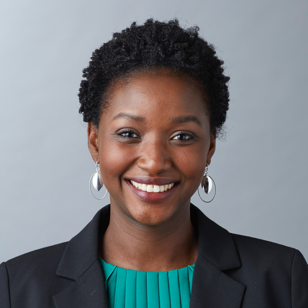What would you do with a financial windfall?
Learn how a client navigated the complex challenges that windfalls can bring.
Article published: November 22, 2024

In this article:
- Financial windfalls can be exciting, but they also can come with challenges around taxes, investing, estate planning and more.
- Managing these challenges may require collaboration among different financial professionals.
- A client story illustrates how a financial plan can incorporate both personal values and financial strategies to get the most out of a windfall.
One of the greatest honors about being a financial planner is getting to help my clients through major life events – marriages, births, new jobs, retirement. These events often bring significant changes to their financial situation, requiring careful personal finance management. One exciting life event that several of my clients have experienced is a financial windfall.
A financial windfall can take many forms, including equity compensation, an inheritance, winning the lottery or selling a business. This sudden wealth can be both exciting and overwhelming.
Upon receiving their newfound wealth, my clients think about all the possibilities they now have – retiring early, paying down any high-interest debt, building an emergency fund, traveling the world or buying a new car, just to name a few. Then, an overwhelming number of questions emerge: Should they invest most of their windfall? How much should they keep in their savings account or as cash? Should they give some of it to charity? How will interest rates affect their investment strategy? And the big one: What about taxes?
The job of a financial planner is to be an objective voice and to develop a strategy that helps address these questions and others.
There are a range of approaches to managing a financial windfall. Your financial circumstances, personal values and the needs of your loved ones may determine which approaches you choose. Whether you aim to achieve specific financial goals, enhance your financial security or plan for retirement savings, strategic planning is essential.
To illustrate, let me tell you a story about a person who I will call “Dave.”
A year-end financial windfall
Dave was a tech wiz. He had founded a software company with a mission for which he was passionate. The only things he cared more about were his son and granddaughter, who only grew in importance over the years after his marriage ended. He had modest beginnings, and he wanted to help others the way he and his family had been helped when he was younger.
Years later, at age 59, he got an offer for his company that was too good to pass up. The sale would result in a major financial windfall – a large sum that would significantly change his financial situation.
His excitement was apparent following the sale, but then he became apprehensive. So much of his identity was wrapped up in his role within the company. Who was he now and what would he do with his life? Meanwhile, how could he get the most out of this substantial windfall, especially given the tax liability? It was already late November, so he needed to consult with a tax professional and evaluate his investment options fast. Managing sudden money requires careful planning, and he wanted to ensure his newfound wealth would provide financial stability for years to come.
The personal impacts the financial
But this was also a major life change for Dave – a transition that affected both his personal life and his financial situation. We believe the best financial planning will manage your wealth in a way that reflects your personal goals and values, and a financial planner can only do that by listening.
Dave kept coming back to the question of who he was without the company that he founded.
It all came back to what was most important to him: his legacy – his son and granddaughter – and his passion for charities. From there, the cards started to fall into place. He knew he wanted to retire early and to share his wealth with his family and charities. With careful planning, his newfound wealth could provide financial security for his loved ones and support the causes he cared about.
Tax-smart charitable strategies and estate planning
One strategy that Dave considered was using a donor-advised fund. A DAF met Dave’s goal of leaving a legacy and giving to causes that he was passionate about, but it could also allow him to offset his large tax liability, something he also reviewed with his tax professional. This approach aligns with Dave's financial goals and his desire to engage in responsible money management.
Dave was also keen to find ways to protect his wealth for his family, so he included his estate planning attorney in the process. Knowing the financial impact of divorce firsthand, Dave wanted to make sure that the wealth that he passed on to his son and granddaughter would be kept by them in case either of them got divorced in the future. The estate planning attorney suggested Dave create that security by establishing a revocable trust. The trust can convert to an irrevocable trust after Dave’s death, thereby helping to protect the money for Dave’s son or granddaughter.
The next generation
Dave had been a financial success for some time, but because he came from a modest background, he had to put himself through college and graduate school. He didn’t want his granddaughter to be burdened with the student debt that he once had.
As part of the estate plan suggested by the estate attorney, Dave “superfunded” his granddaughter’s 529 plan. That means instead of only funding it with the annual gift tax exemption amount of $17,000, Dave was able to fund the 529 plan account with five years’ worth of contributions (which is a special allowance under the law that is exclusive to 529 plans).
This particular windfall resulted from the sale of a business, but all windfalls can be unique in their own way and may require their own sensitivities, such as an inheritance following a loved one’s death, or even sudden wealth from lottery winnings. Whether you're a lottery winner, receive an unexpected inheritance or sell a business, sudden financial windfalls can drastically change your personal finance landscape. Financial planning that focuses on collaboration and listening can find approaches that help protect your windfall while using it in ways that are meaningful to you. Working with a financial planner can help you navigate these complexities with the goal of securing your financial future.
The information regarding estate planning should not be construed as tax or legal advice and is for general informational purposes only.
Neither Edelman Financial Engines nor its affiliates offer tax or legal advice. Interested parties are strongly encouraged to seek advice from your qualified tax and/or legal professionals to help determine the best options for your particular circumstances.
AM3985663




